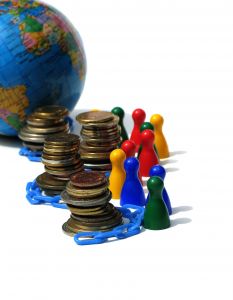Foreign Investment in 2012
When looking back from future decades, 2011 may well prove to be the year that saw a fundamental shift in the global economy. The Eurozone crisis, an ever present on our front pages that is not yet resolved at the time of writing has shaken the world financial system to its core. At the same time, US politicians have engineered astonishing crises out of nothing which has seen their country’s debt downgraded for the first time in history.
It has not been an easy year for foreign investment. Still, there are always opportunities to be found, and with the growth of companies like Currencies Direct, making a currency exchange has never been easier, the challenge is identifying where to put that money.
Until 2011 the perceived wisdom was that the developing world would pick up the slack as Europe and the US struggled to recover from the recession. In the last twelve months, however, Brazil’s overheated economy has stalled, China has also seen rapid drops in growth, whilst Russia, South Africa and India seem gripped by a volatile mix of dangerously unstable politics and localised corruption.
Assuming the Eurozone isn’t a good place to spend money, the Arab world is reeling from the Arab Spring, which will bring opportunities for investment in the longer term. Tunisia is by far the most prepared country for foreign investors, however, the new government is not yet fully established and most investors will want to wait before putting their money in. Egypt continues to struggle with its revolution and in the long run Libya could represent the best option of all, but the perceived wisdom says, not yet.
So where to invest? Two unlikely countries could offer good returns. The first is Israel, which, despite its precarious geopolitical situation and dense population is experiencing an astonishing tech-boom. It has a highly educated, highly motivated and innovative workforce that is seeing money flow into Israeli start-ups from all over the world. At the same time, Israelis have protested about social inequality for the first time ever in the last few months, which could see policy changes that help even more entrepreneurs get off the ground.
Israel represents the safest opportunity for a sound return – although political events could turn that upside down at any moment. An alternative option might be Morocco, which has more or less survived the Arab Spring unscathed and is throwing itself into a wholehearted green revolution, opening up the intriguing possibility of electricity being exported to Spain and southern Europe from Northern Africa. Morocco is stable, has the many solid western companies present and has cheap labour – rich ground for rapid economic growth.
Until the full fall out of the Eurozone Crisis is known, solid foreign investments may be hard to find, but if you’re willing to be patient and take a few risks, there are still great opportunities out there to be found.






